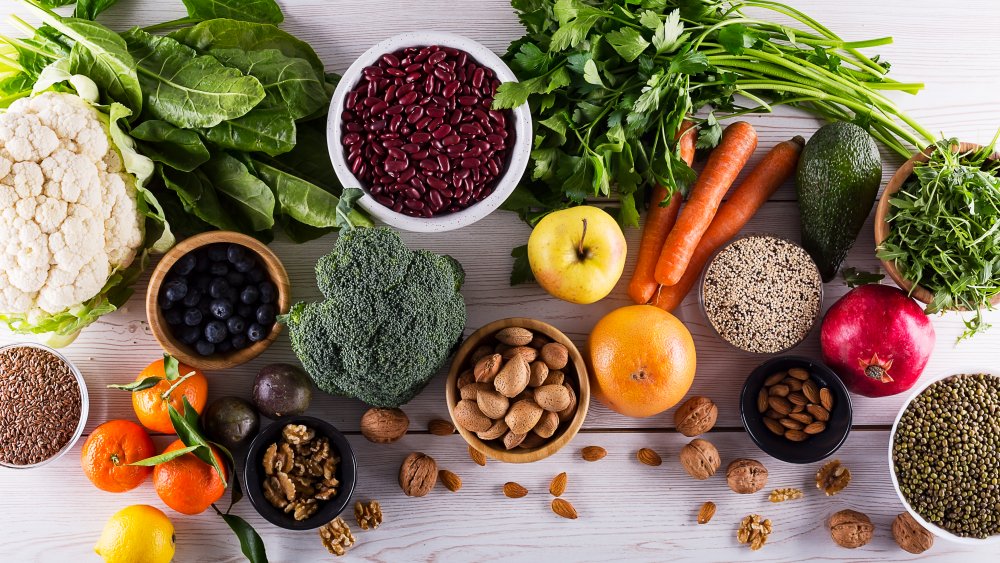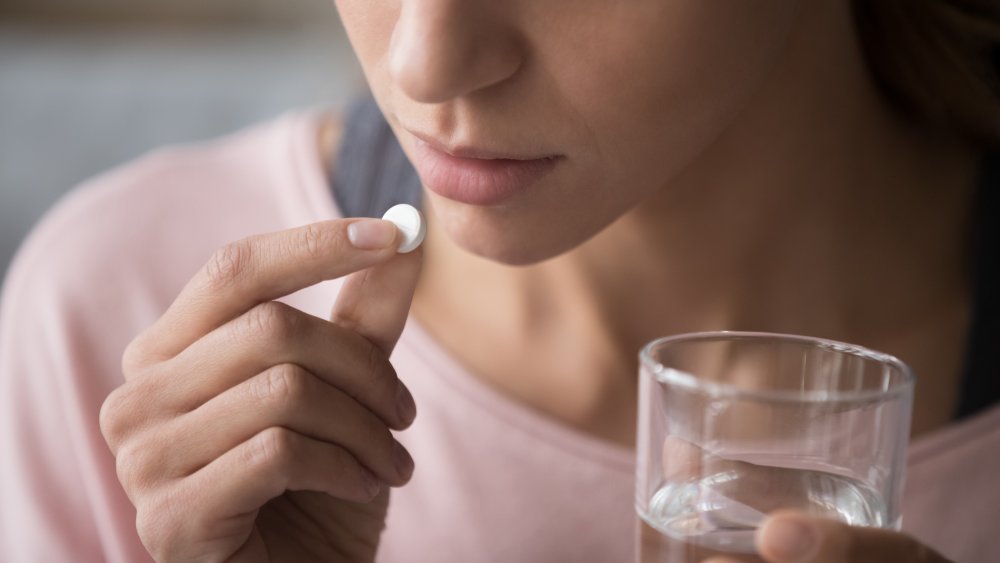The Absolute Worst Things You Can Do After Getting Food Poisoning
The National Capital Poison Center has identified about 250 different types of food poisoning, the causes of which range from bacteria and virus, to toxins, mold, and parasites. In fact, food poisoning is so prevalent that one in six Americans get it every year. The opportunity for food poisoning lurks everywhere; it can be triggered by leafy vegetables, dairy, fruits and nuts, poultry, vegetables that grow on vines or stalks, beef, eggs, pork, grains and beans, and root vegetables — which covers just about everything.
We all feel sick to our stomachs at one point or another, suffer from diarrhea from time to time, perhaps even get the odd stomach cramp or two. But unless we're really ill, we may tend to keep blundering along, until we feel better — unless it only gets worse. It's important to remember that food poisoning can be dangerous for infants and young children, the elderly, people with chronic health conditions, and people with weakened immune systems, so one of the worst things to do with food poisoning is to ignore it.
Food poisoning doesn't just set in immediately after a meal. Gastroenterologist Christine Lee says common food poisoning like Bacillus cereus can make you feel ill up to 16 hours after it is ingested. Other forms of food poisoning could take weeks (or months, like Hepatitis A) to show up. In general, most food poisoning cases last anywhere from one to 10 days (via Cleveland Clinic).
Water may not be the right fluid to drink after you get food poisoning
You won't feel like eating when you have food poisoning, but you need to drink plenty of fluids if at all possible. It will be a mistake to drink just water though, because what you really need is something that is non-isotonic. Lee suggests consuming fluids like Gatorade, broth, ginger ale, or juice — which your body is more interested in retaining. Water just runs straight to the kidneys where you'll pee it out, or have it go out the other way as diarrhea.
If you need medication, feel free to take Pepto Bismol (which can turn your stool black just FYI), but she says: "I would not recommend taking something like loperamide (Imodium) to stop diarrhea, as it's better to expel the toxin out of your system rather than keeping it in."
Once you start feeling better, Lee says it's okay to start a bland diet made up of bread, rice, toast, bananas, and applesauce (otherwise known as the BRAT diet). But if your nausea is severe, you develop a high fever, or have bloody stools, you need to get medical help as soon as possible.

